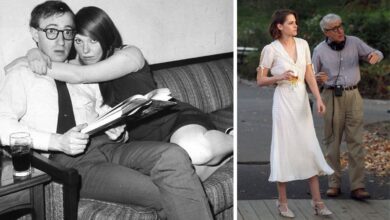Controversial Topics by Opinion Columnist Klein

The Impact of Opinion Columnist Klein in Modern Journalism
Opinion columnist Klein has made great strides in the world of modern journalism as a writer, provoking conversation for many years in her column. Published often in the New York Times (NYT), Klein’s pieces address a range of hot-button issues that cut the reader to think critically and in opposition to conventional wisdom. From the NYT crossword to the “opinion columnist Klein” clue answers, we feature trending news and publication moves these days. … Klein in your NYT crossword puzzle that occurs only a few times a year, or be the first to guess “opinion columnist Klein” in all those pundit-themed puzzles.
Tackling Political Divides
Klein’s writing often cuts to the core of political divides, capturing contemporary political discourse in all its complexities and nuances. Klein has a talent for presenting different sides and never avoids the difficult discussions. And the is little more that will inform your readers, or allow them to reflect on their own beliefs, than this approach. Instead, when addressing the polarization within American politics, Klein explains the root of its causes, whilst also providing a solution inside his columns — opening up the discussion to all.
Addressing Social Justice Issues
Social justice is also a strong suit of opinion columnist Klein. Klein writes about racial inequality and women’s rights — social matters that need voices and insistence. These stories can lead to important public dialogue, and sometimes public policy changing. The voice Klein offers us allows marginalized narratives to be heard, ensuring that whispered tales of injustices continues to reign on the top of the public agenda.
Exploring Economic Disparities
Another frequent theme in Klein’s writings is economic disparity. By poking around the roots of income inequality and the results of economic policies, Klein has brought a lot of financial struggles taking place into the light. The in-depth analysis provided in these columns makes readers comprehend the larger economic scenario and how it affects the lives of individuals. We must grapple with this reality to have more intelligent conversations on building a more just world.
Climate Change and Environmental Policy
She also tackles the issue of climate change and how it changed environmental policy. The appendages to their titles will sometimes delve into the overlap between environmental science and politics, frequently considering the role that economics and those apparently inconstant creatures known as voters will play in tackling the challenges ahead. Indeed, Klein’s dedication to the cause demonstrates both the necessity of the practices for sustaining the future of the planet and the urgency in fighting against climate change. Klein describes these causes to make readers think about how they contribute to the planet’s destruction.
Understanding the Media Landscape
In fast news cycles, Klein’s columns assess journalism’s role in society. That critique includes levels one above—where mockournalists have lifted the veil on fake news and digital disinformation/- and below, where hacks jerkily pit the phalanges as they bemoan the impact of digital media on public perception. Klein incorporates a bit of a fast-paced take, aiding readers through the labyrinth of modern media and keeping it real in terms of what news and information we need to take for what it’s worth. This is a particularly salient point now, with ongoing arguments over media slant and journalistic legitimacy.
Cultural Reflections and Critiques
Aside from new critiques of the cultural sphere, cultural topics are also central to Klein’s analysis. Klein’s columns are used to dissect everything from popular culture phenomena to societal trends, providing sage insights into the cultural zeitgeist. These articles often strike a chord with readers, acting as a reflection of contemporary society and the changing norms and values of society. Touching on cultural issues, Klein is able to connect, not as a distant writer, but as one almost speaking directly to the reader, explaining subtly hard to grasp concepts not as an outsider trying to explain them away.
Personal Narratives and Human Interest Stories
Klein addresses big questions but also includes personal narratives and human interest stories. The raw nature of these pieces brings the scope of human horrors on a more personal level, often focusing on the story of one individual with wider themes that reflect our society. Klein combines intimate stories with broad issues, creating a compelling story that gets readers emotionally involved.
Controversies and Criticisms
Klein’s columns on controversial topics will sometimes provoke outrage. Much of Klein’s writing elicits powerful responses whether she takes a controversial stance or critiques something obviously true. These controversies show Klein’s influence and the importance of questioning oneself. Thought-provoking is a good trait in journalism, and Klein has it in spades.
The Future of Opinion Columnist Klein
Opinion writer Klein will continue to impact the evolving world of journalism with their powerful writing. Klein’s insight will be just as invaluable as we grapple with new problems and societal challenges. The main point is that Klein will continue to be a leading voice in reasoned criticism and debate. Klein’s columns are crucial for combining intelligent analysis and opinion.
The Bottom Line
The contributions Klein has made to journalism are immeasurable Opinion We owe readers the opportunity to grapple with difficult questions. Klein writes about everything from political divides, social justice and economics to environmental policy. Klein urges readers to think critically and broadly, aiming to create a more educated and concerned public. Klein’s influence on modern journalism is clear, whether you’re solving his crossword or reading his latest NYT piece.





